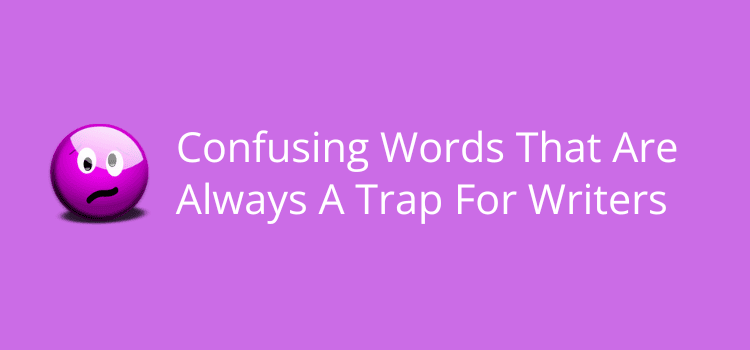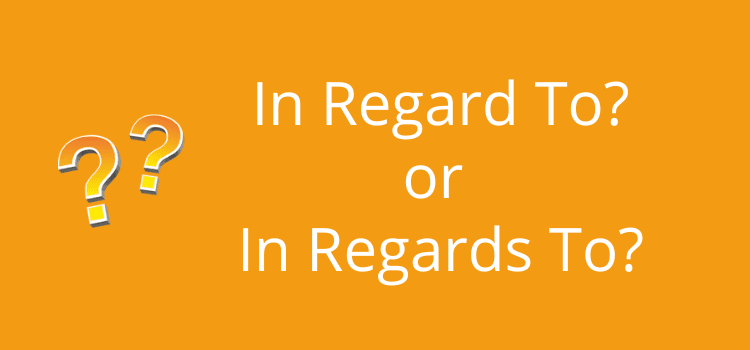
Confusing words are one of the sneakiest little traps that always lie in wait for writers.
Some words sound the same, some look alike, while others can have meanings that are just slightly different, but enough to change the sense of a sentence.
Getting these types of words wrong can make your writing confusing, awkward, or even unintentionally funny.
That’s why you need to pay careful attention and check these pesky words so that you can write with clarity and precision.
What are confusing words?

The best definition is that they are words that regularly come in pairs and create confusion about choosing the correct word or form. Some words can sound exactly the same but have totally different meanings, such as bear and bare.
You can also use words that look very similar on a page, but are easy to mix up. Complement and compliment are good examples of this type of confusion.
Other problematic words include those that have slightly different meanings, but that subtle difference can lead to misunderstandings, such as sympathy and empathy.
Even the most experienced writers pause with these types of words, especially if they occur in idioms or other fixed expressions.
Hitting the wrong key can also lead to typos with common words that can confuse a reader, like there and their or from and form.
Context is always the determiner of which word is correct, but that doesn’t always come from your instincts.
Many commonly confused words occur regularly and are easier to remember. But others that you use infrequently are always ones that can trip you up.
The only way to be sure you are using the right words is to be on your guard, even when writing emails, messages, or quick blog posts.
Whenever you have even the slightest doubt, grab your dictionary and double-check the word’s usage.
Homophones, homonyms, and homographs
The three words homophone, homonym, and homograph are definitely confusing words in themselves.
They sound similar, look alike, but define different types of word pairs that have specific properties or features.
Here’s how they differ:
Homophones are groups of words that sound the same but have different meanings or spellings, such as pair and pear or right and write.
Homonyms are words that are spelled and pronounced the same but have totally different meanings, like bat (the animal) and bat (used in sports).
Homographs are words that share the same spelling but have different pronunciations and meanings, such as lead (to guide) and lead (the metal).
You can easily see why these three groups of words cause so much confusion, even for careful writers.
These words can describe overlapping ideas, because English is a bit messy and doesn’t stick to many predictable rules when it comes to spelling and pronunciation.
Homophones are probably the most common trap in writing because they can sit in sentences without being noticed. A spell checker won’t catch them, and your eyes might pass right over them as well.
Writing rein instead of reign or brake instead of break can completely change the meaning of a sentence, but might not look wrong.
Homonyms are just as tricky because the same word can take on two completely different meanings depending on context. While park can mean a green space in a city, it can also mean stopping a car.
Homographs add an extra layer of difficulty because it’s only the pronunciation that changes the meaning.
Tear can mean to pull something apart, but it can also be a drop of liquid from your eye. Only context or emphasis makes it clear which one you mean.
These quick examples show you why confusion doesn’t necessarily come from a lack of knowledge. It often comes simply from English being inconsistent. But that’s all part of what makes writing so fascinating.
Words with similar meanings
Another type of confusion stems from words that seem to have the same meaning, but don’t quite fit for either tone, usage, or context.
Take sympathy and empathy, as a good example. Both words deal with understanding another person’s feelings, but sympathy means you feel for someone, while empathy means you feel with them.
The same goes for tricky word pairs such as historic and historical, or assure, ensure, and insure.
They might look interchangeable at first glance, but each one only fits in a specific situation.
These small differences might not seem that important, but they can change how your writing is read and understood.
Choosing the correct word in context adds clarity, tone, and credibility.
Whenever you’re unsure, check the definitions for each choice.
Fixed expressions and idioms
Fixed expressions and idioms are another tricky area where confusing words abound.
If it’s an old and fixed phrase, writers tend to remember the sound of it rather than the actual words. That’s why so many expressions can change slightly over time.
Think of for one foul swoop instead of one fell swoop, or sleight of hand and a slight of hand.
The problem is that the words in expressions sound almost identical when we speak. But on the page, the wrong choice can make readers pause or even smile for the wrong reason.
Expressions like straight-laced and strait-laced or a damp squib and the variation damp squid show how easy it is for a simple mix-up to take hold and spread.
When an incorrect form becomes familiar, it can feel just as natural as the right one.
Writers who rely on memory alone often fall into this trap. I know, because I’ve done it so many times.
The only way to avoid making a mistake is to check the phrases in a reliable dictionary or idiom reference rather than thinking that if it sounds right, it must be right.
Problematic new or informal words
Recently coined informal words or slang can be confusing for writers.
Words like irregardless, anyways, orientate, snuck, impactful, humongous, or literally can distract or confuse readers.
Although these types of words may be widely understood, they don’t always follow traditional style or usage rules.
If you use them without thought, it can make your writing seem careless, imprecise, or far too casual.
When you want to include words like this, it’s important to know your readers and think about whether they are acceptable or might cause misunderstandings.
Some words, like literally, snuck, and anyways, are increasingly common in speech but are rarely acceptable in formal writing.
However, in fiction or creative writing, there could be situations where these types of words might be appropriate.
Tips for avoiding confusion
Problem word pairs are always prone to errors or wrong choices, but there are practical ways to deal with them.
The first step is to slow down when you’re writing, and even more so when proofreading.
If you come across an idiom or fixed expression, take an extra second or two to be sure.
Familiar words can be the biggest trap because you often rely solely on your memory or instinct.
Context can often be your best guide for word usage. Ask yourself whether a word fits both in meaning and tone, and whether it says exactly what you intended.
If you even have the slightest doubt, check a dictionary, style guide, or reputable usage reference resource. Even words that might seem obvious, like procrastinate and prevaricate, can surprise you.
Finally, always pay extra attention to new or informal words. Do they fit your writing style?
The best ways to avoid potential errors are to stay aware, check carefully, and try to remember what you discover when you are not sure.
Conclusion
Confusing words are always a challenge for writers, but you can find ways to manage them.
When you know about the different types of traps, such as homophones, homonyms, homographs, similar-meaning words, idioms, and even new or informal terms, you can approach your writing with more awareness.
The key point is to slow down, check your choices, and rely on context, references, and careful reading rather than your memory or instincts alone.
Mistakes happen to everyone.
But paying extra attention and double-checking confusing word pairs will make your writing clearer, more precise, and more professional.
Related Reading: Confused Words That We Get Wrong All The Time
Share This Article


